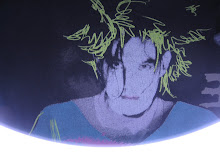In the world of editing and publishing literary translations, at least within the framework of independent, small- to medium-sized press publishing, one can afford to be concerned with more than the marketing department. You can consider decentering translations away from that nebulous chestnut of simply “adhering to the spirit of the ‘original’, and/or “updating a work (idiomatically or temporally) into contemporary English.” This is vital in understanding our mission.
There is no canonical version of a translated text. It is all an aspect of a palimpsest. And the palimpsest, by nature, refuses inscription, or, more correctly, invites repeated inscription. Even in the case of something as seemingly definitive as the 1,000-page brick of Zephyr’s Complete Poems of Anna Akhmatova—this is only one version of certain aspects of Akhmatova’s life in verse (through the lens of the translator Judith Hemschemeyer). It is a very specific project steeped in a variety of intents. As opposed to, say, the small handful of Akhmatova versions that Jane Kenyon poured over for years.
Translation is built on connections and tissues of the unexplained that, as a translator, editor, or reviewer you need to explain--how did you arrive at your version…. For years I have believed that translation is the closest form of reading. After my first editing job of a literary translation through the University of Iowa's International Writing Program, I was absorbed by the extra layers of detail that had to be navigated when editing a translation: original text, translation, translator’s notes, previous publications, voice and tone, dozens of e-mails debating certain aspects of the translation with author, translator, and editors. On top of that, considering design elements, how the translation fits into the previous and forthcoming series. And then the hurdles of keeping translators to a schedule.
As publishers who are also translators, it’s of vital importance that Zoland continues to remind people from the bookshelves that the poems in translation didn't start in English. That there was a language these lines were and remain in. In a very small way, we're doing our best to chip away at the monolith of a monolingual society.
And we like to read.

No comments:
Post a Comment